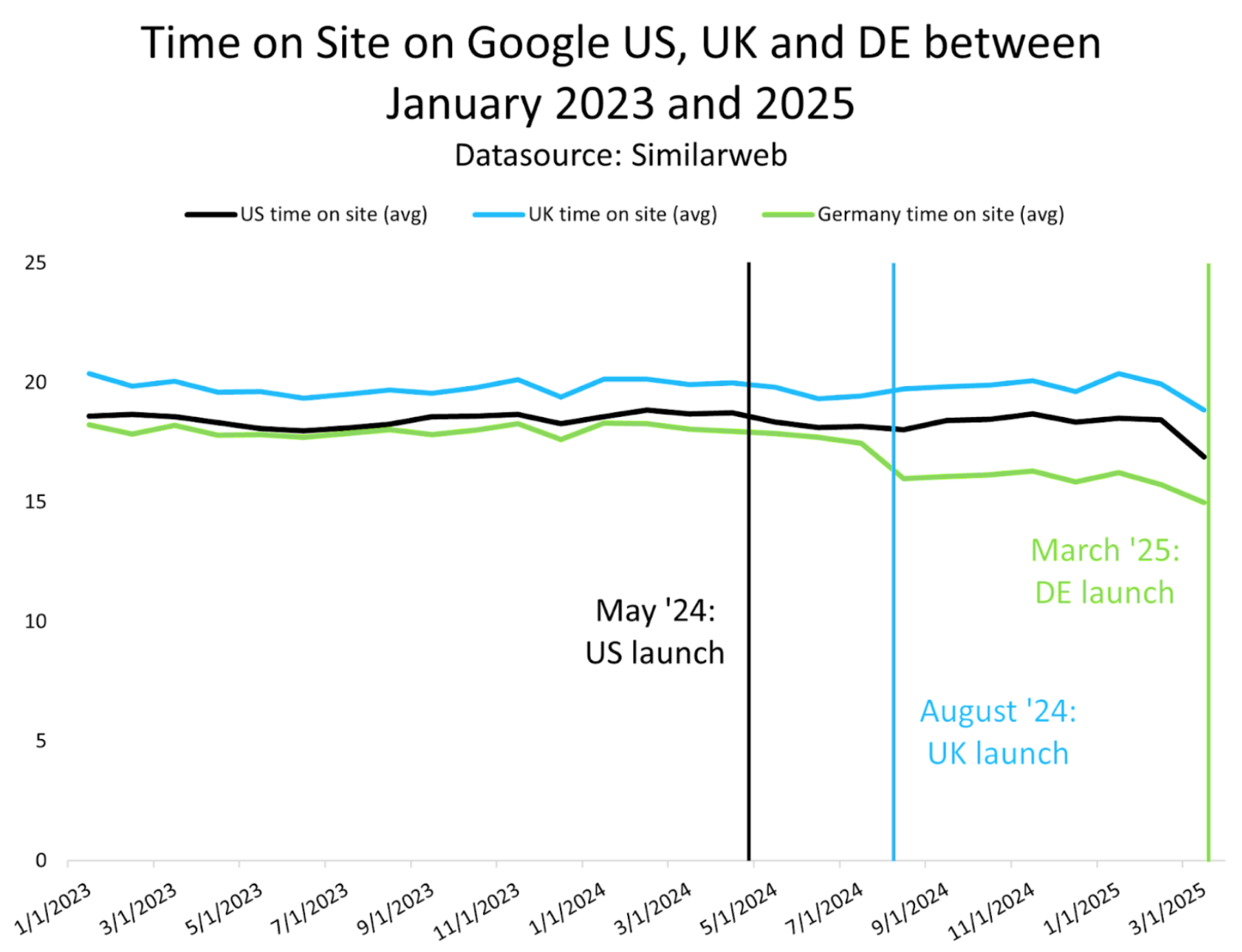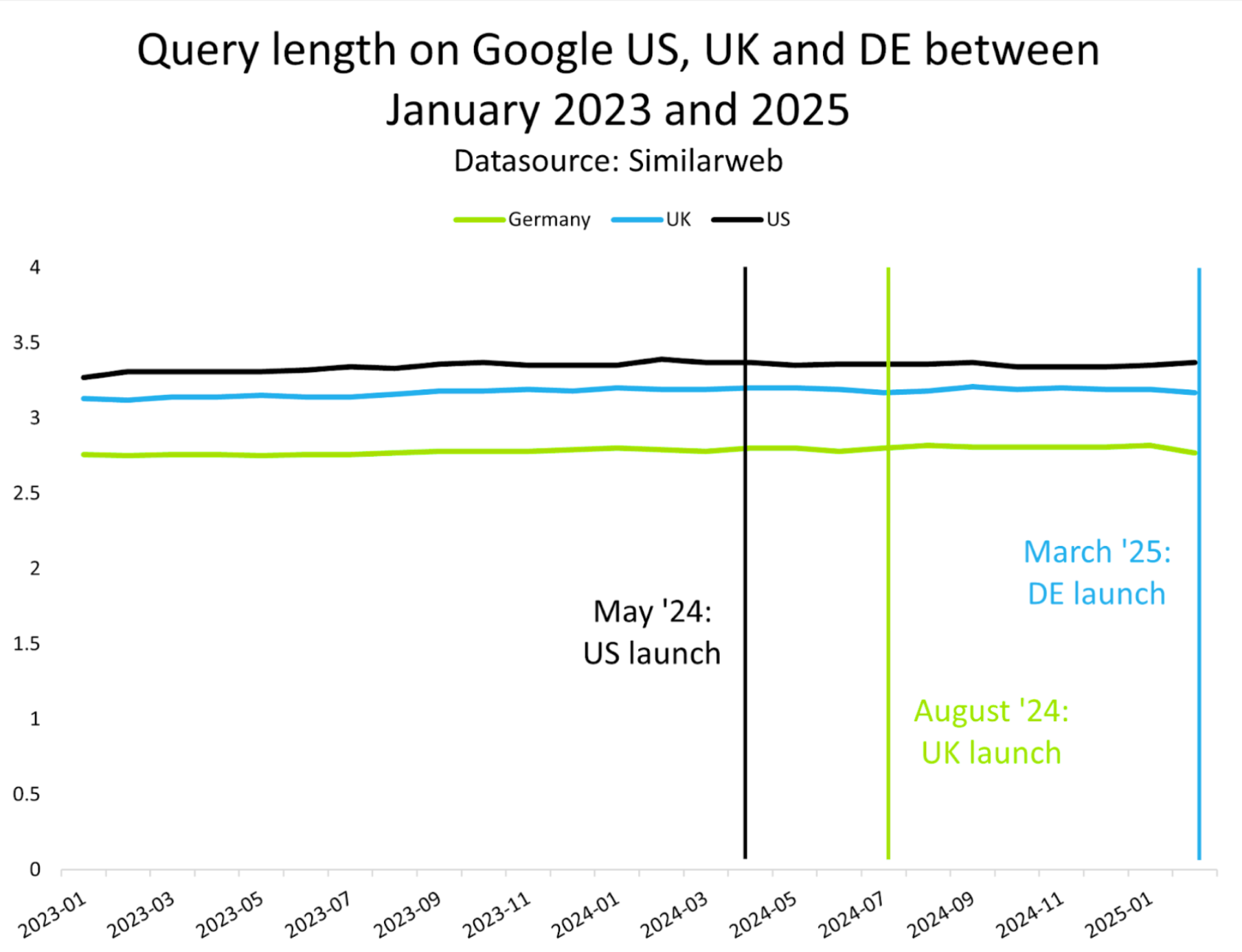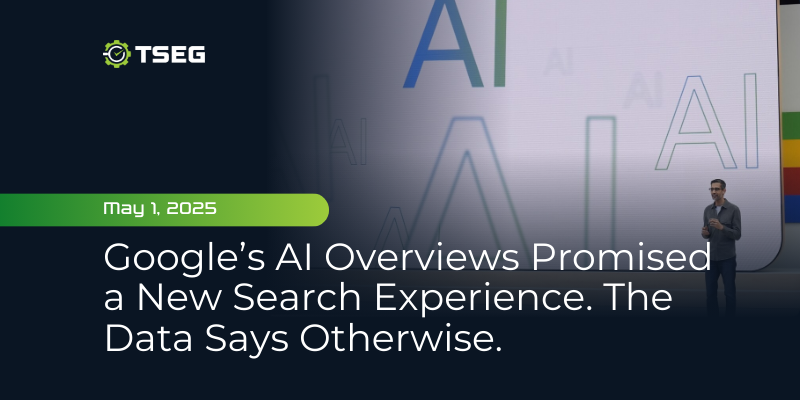Google’s AI Overviews Promised a New Search Experience. The Data Says Otherwise.
Posted on Thursday, May 1st, 2025 at 7:11 pm
Google’s Big Talk About AI Overviews
When Google introduced AI Overviews in 2024, CEO Sundar Pichai described it as a turning point in how people use search. According to him, users were asking longer, more complex questions, engaging more deeply with results, and walking away more satisfied.
Across press appearances and investor calls, Pichai and other executives repeated the same message: AI Overviews were increasing search activity, improving the user experience, and benefiting the broader web ecosystem.
But there was a notable omission—no actual data to support these claims.
That’s where SEJournal stepped in. In a new analysis done in partnership with Similarweb, they reviewed more than 5 billion search queries and behavior across 20 million websites. What they found undercuts much of Google’s narrative.
What The Investigation Actually Found
SEJournal and Similarweb analyzed a massive sample of search activity across the U.S., U.K., and Germany. The results tell a more complicated story.
Here are the top line findings:
- In the U.S., visits to Google rose by 9% following the AI Overview rollout.
- But users are spending less time per visit, suggesting quicker exits.
- Page views tied to AI Overview keywords increased by 22%, but those queries still generate far fewer clicks than searches without AI Overviews.
- In the U.K. and Germany, overall engagement metrics were flat or declining after the feature launched.
The data shows some increase in usage metrics, but it’s inconsistent, and most of the deeper engagement patterns that Google hinted at are missing entirely.
Claim 1: More “Search Usage”? Not Quite.
One of Google’s most repeated claims is that AI Overviews have led to “increased search usage.” But SEJournal points out that Google never defines what that actually means. Are they referring to more searches, longer sessions, or deeper interaction with the results page?
In the U.S., the claim appears directionally true: visits to Google did increase by 9% after AI Overviews launched. But the deeper behavioral trends tell a different story. Time-on-site has remained flat or declined. Pages-per-visit dropped immediately after rollout, and only began recovering much later, possibly due to unrelated adjustments.
However, in the U.K., visits saw no increase after AI Overviews launched. In Germany, where the rollout was delayed until March 2025, visits actually declined… And across all three markets, time-on-site trended downward.
The claim about increased search usage is only partially correct and heavily dependent on which market you’re looking at. There’s more traffic, but less user engagement, especially in the immediate aftermath of the launch.

Claim 2: Longer, More Complex Queries? The Data Doesn’t Support It
Another frequent claim from Google is that AI Overviews encourage users to type longer, more nuanced queries. But this study’s analysis finds almost no evidence to back that up.
In the U.S., the average query length rose from 3.27 to just 3.37 words over two years—a change of about 3%. Since AI Overviews launched midway through that period, it’s hard to attribute even that small uptick directly to the feature.
In the U.K., query length actually dropped slightly after AI Overviews went live. Germany showed a tiny increase, but it occurred before the tool had even launched in that market.
Taken together, these numbers paint a clear picture: the supposed transition to longer, more complex queries simply isn’t happening – yet. SEJournal concludes the claim is overstated and not supported by the available data.

What Law Firms Should Do in Response to the AIO Era
SEJournal and SimilarWeb’s findings raise important questions for firms that rely on organic search for cases. Yes, more people are using Google, but they’re spending less time on your websites, and AI Overviews are answering their questions before they ever click through to a website.
That means your content can’t just aim for a ranking—it has to compel action. When AI Overviews are displayed, your site needs to be referenced directly. When they’re not, your page still has to offer content valuable enough to earn the click. Either way, you’re competing with answers that appear instantly, right at the top of the page.
At TSEG, we help law firms stay ahead of these changes. Whether AI Overviews continue expanding or plateau, our team develops search strategies built around real user behavior, not just Silicon Valley spin. We optimize for both visibility and engagement so that when potential clients search, your firm stands out. Contact TSEG today for more information.
